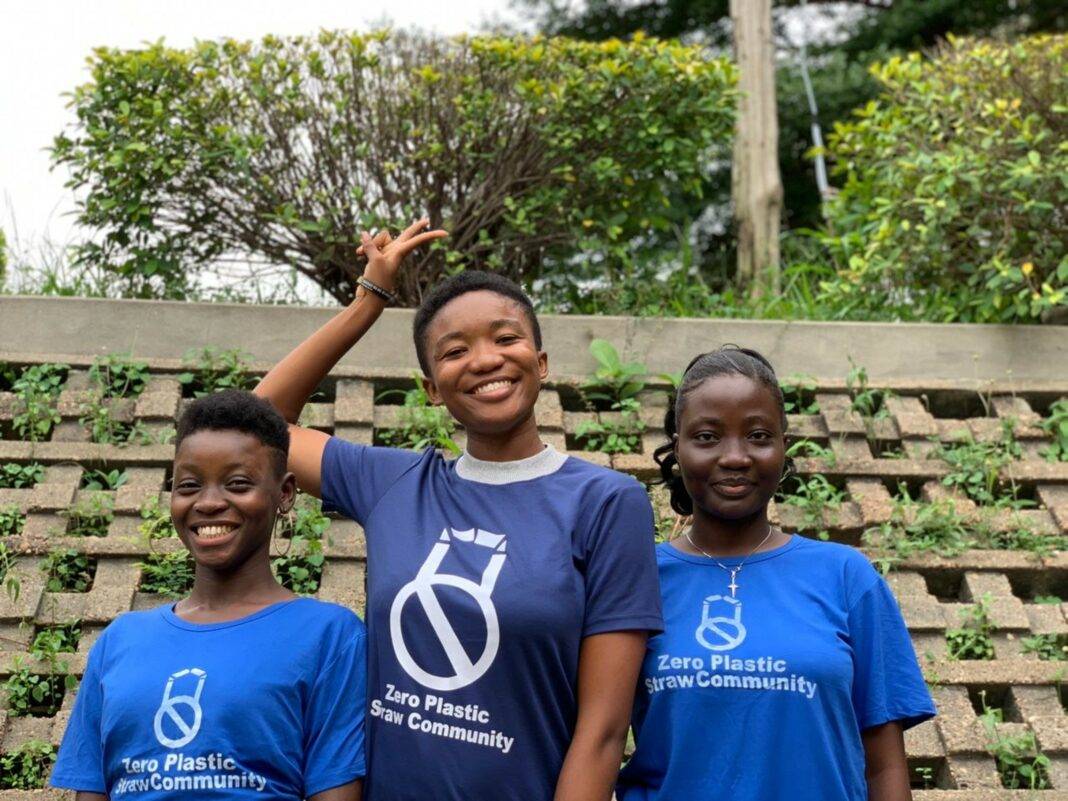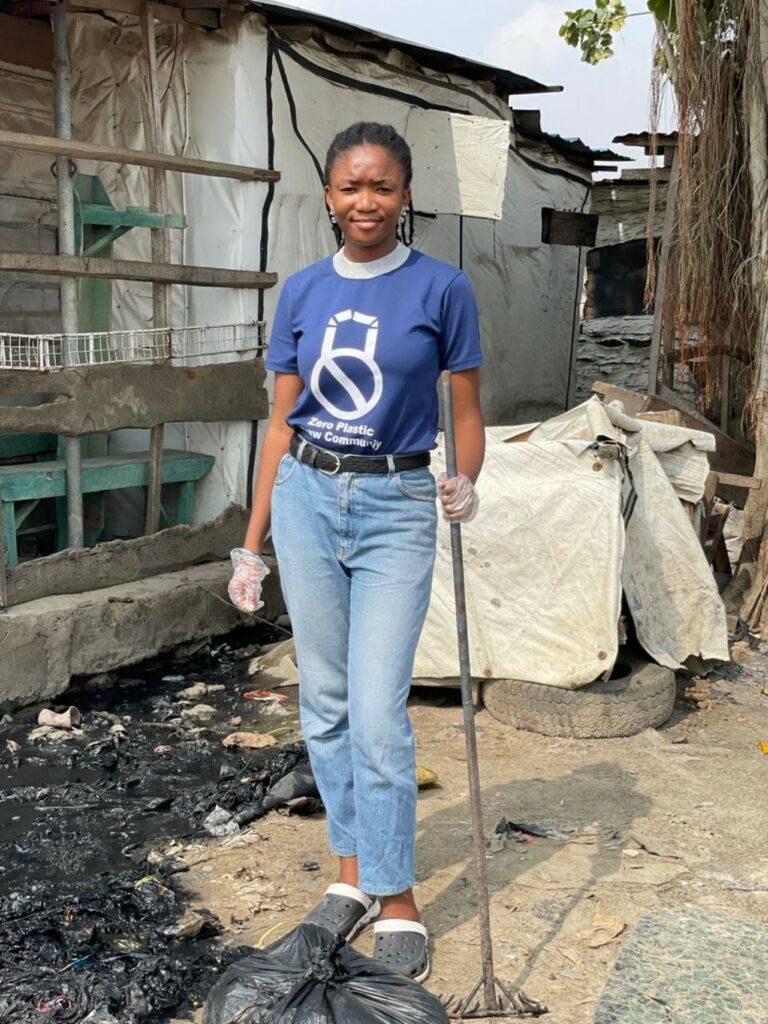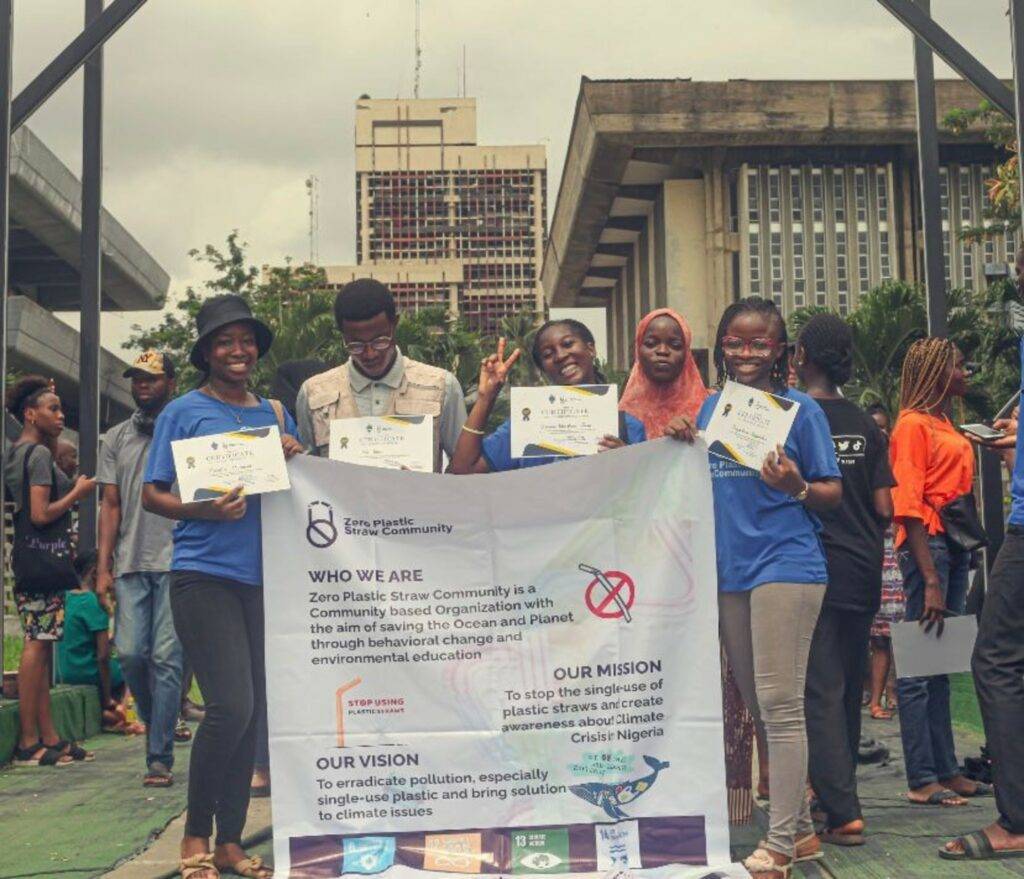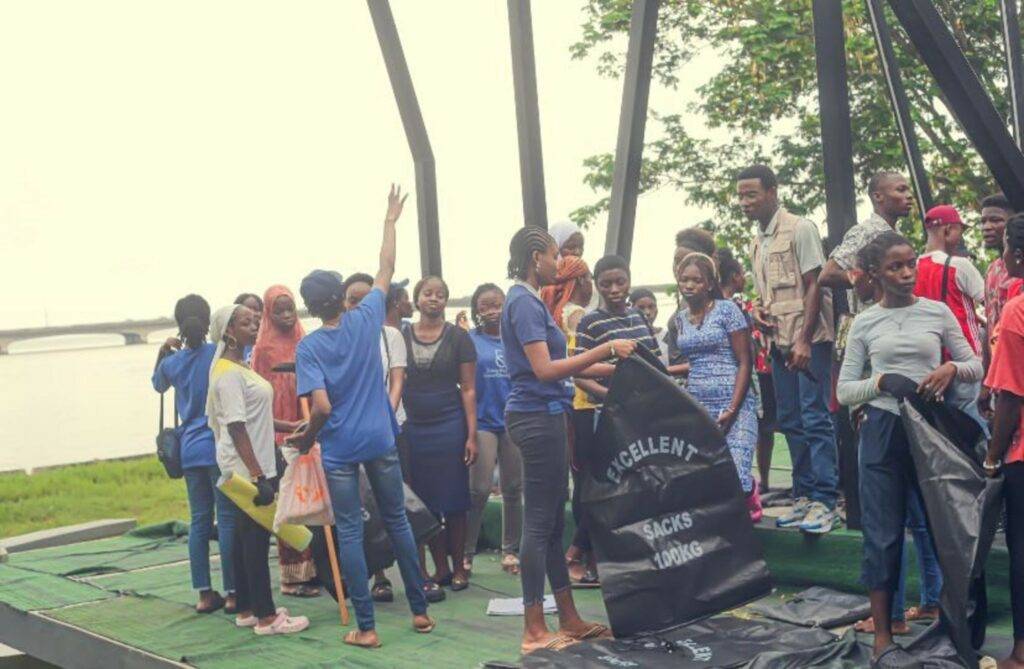With little infrastructure dedicated to waste disposal and recycling, a young Marine Sciences graduate realizes education is key to change.
Toluwalase Abiona is a Nigerian environmentalist whose non-profit, Zero Plastic Community, promotes environmental sustainability and is guided by the United Nations Sustainable Development Goals (SDGs). She grew up in Lawanson, Mushin, a part of Lagos mainland with a lot of plastic pollution. Environmental laws exist on paper in Lagos but are not implemented or enforced. Huge marketplaces in the area contribute considerable waste.
Toluwalase Abiona aims to change that. A graduate in Marine Science, she understood the practical aspect of her studies when she saw others doing environmental work. Abiona began cleaning up plastic in her community a few years ago, even though others around her called her crazy. Realizing that most people didn’t understand or recognize the dangers of plastic pollution, she created Zero Plastic Community to educate others and come up with solutions.
The interview was conducted via email — both Toluwalase Abiona and Obinna Tony-Francis Ochem were in Lagos, Nigeria. It has been edited for brevity and clarity.
Obinna Tony-Francis Ochem: I must commend your work, Toluwalase. When I learned about it, I was fascinated. During an internship, I worked at the Nigerian Ports Authority environmental section, where I saw and learned about recycling. You specifically do what the government has failed to do — educate people and do the actual work. What is your background?
Toluwalase Abiona: I live in Lagos state but am originally from Osun State, also in southwestern Nigeria. At the University of Lagos, Nigeria, I majored in Marine Biology. In Nigeria, marine related courses — except the engineering aspect of them — are barely taken seriously, though Nigeria is surrounded by water. So most graduates strive to work in corporate organizations that just need your certificate. University of Lagos is the only university in Nigeria offering Marine Sciences with a Fisheries and Marine Biology major. In the course, I learned about the environment and aquatic habitats, from the biology of the water to its aquatic inhabitants.
OTFO: How can average Nigerians help you in your work? What do you expect from them?
TA: The primary issue in this country is littering, as seen in Lagos streets. Nothing is in place to keep us in check, so this puts the work on us as environmental activists. A waste bin in an average Nigerian street is a luxury, but we must strive to create the Nigeria and Lagos we want. This leads to my job, which is about educating those who inhabit 99% of the Nigerian locality and who cause land and water pollution with litter that could be recycled. Aquatic organisms suffer, and we humans also suffer.
OTFO: What do you think the government should do on their part?
TA: I believe the Nigerian government can be the financial and welfare support we need. I started [Zero Plastic Community] with personal funding, and I am working hard to save the country. The Federal and State Ministry of Environment can help us by collaborating with organizations like ours. I try to educate people, but this can only be done with enough resources. With the government, we can efficiently and successfully do this work, and with the right government policies on the federal and state levels, we can help the deeper part of Lagos with education and recruit more volunteers to do the work in places that have deteriorated.
OTFO: What challenges have you encountered in your work, and what challenges does Nigeria face as a nation?
TA: On some days, minutes after I have cleaned a particular locality, the neighborhood folks have started trashing the environment again. I knew what I was getting into when I decided to start the work, but this is why I crave government collaboration, especially regarding policies. We survive through donations and personal funds. Massive education is much more important than our physical work, though that’s still important. We must keep doing the work because this is an environment we all inhabit, regardless of our class. I want a liveable environment in which all living things can thrive.
OTFO: Where do you find the hope to keep pushing forward?
TA: I will say God, because he was the one who led me on my path to environmental activism. Whenever I felt weighed down, God held me — my work was volunteer rather than a paid salary. Also, this is the environment where I live. I crave a place where I will be grateful to have left my impact when I am gone.
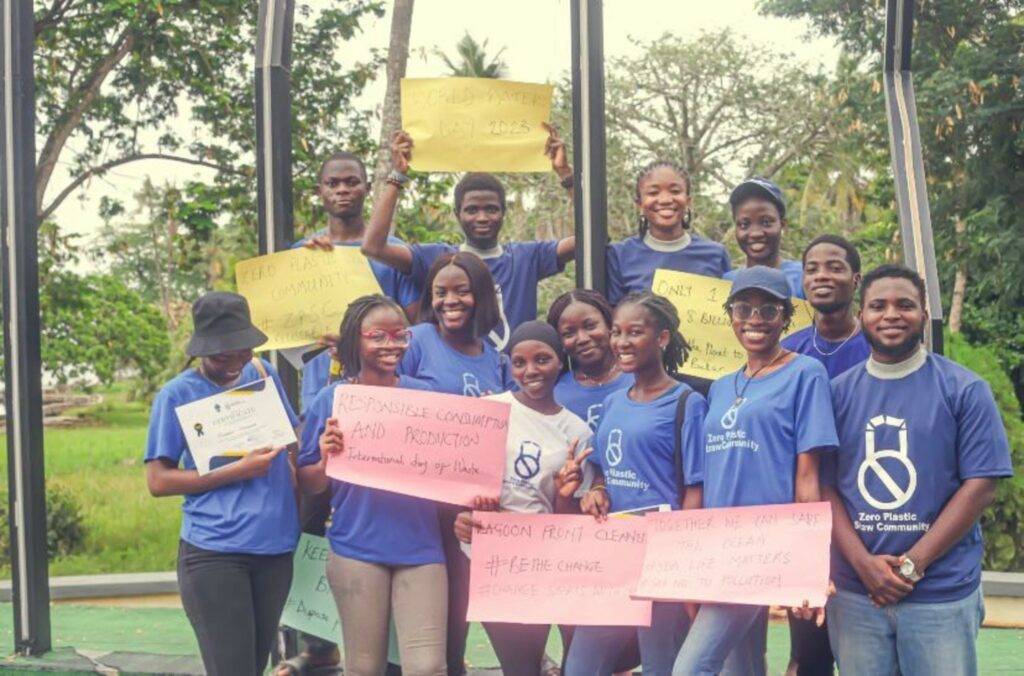
OTFO: Where do you look for leadership as it concerns environmental sustainability? What do you wish the country would do regarding leadership roles to improve Nigeria?
TA: I am very keen that those at the helm of power should embrace environmental sustainability. I believe most Nigerians don’t know the effect of pollution on the environment, and I am ready to create the space for them to understand it and push the nation forward as a collective. I want to catch the younger and older populations through virtual and physical workshops to teach them [about sustainability]. Those in leadership must collaborate with those who studied environmental courses and understand intricacies. I want a Nigeria where we are able to reduce carbon emissions and waste and allow our water and aquatic inhabitants to flourish. Youth are the future, and I need Nigerian youths to be actively involved, as well as women. With accountability, transparency, and the right leadership, we will make the environment better.


